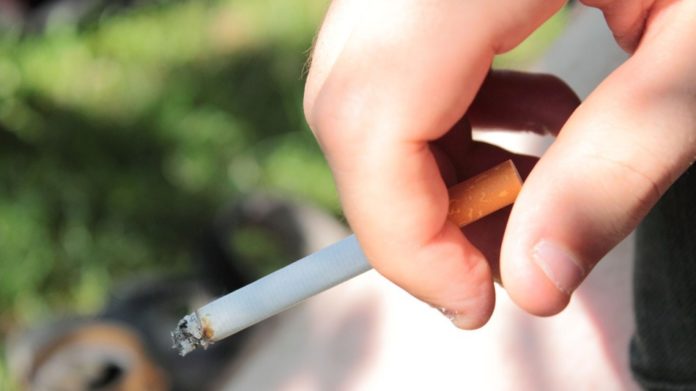Arizona county to vote whether to refuse to hire smokers

Since the United States Surgeon General first released a report linking tobacco to cancer in the 1950s, Americans have slowly weaned themselves off of the addictive product. They’ve been so successful that last year, only 17.8% of U.S. adults smoked — an all-time low. Still, smoking remains the number one cause of preventable death in the U.S. and the habit is costing the government a lot of money in health care costs. So one county in Arizona has proposed a sweeping, controversial policy some say is discriminatory.
Pima County, the second most populous county in Arizona, will vote on Dec. 16 whether to reject job applicants who smoke and charge employees who do a 30% health insurance surcharge, reported the Arizona Daily Star. If passed, the policy would go into effect in July next year.
According to local health officials, the policy could save the county more than $1 million every year in health care costs. They estimate that about one-third of current employees use tobacco. If the workers can prove that they’ve stopped for six months, they won’t have to pay the extra fee.
“It’s not an attempt to punish anybody,” Human Resources Director Allyn Bluzomi told the paper. “It’s an attempt to encourage people to be healthy.”
According the American Lung Association, Arizona doesn’t have laws that protect the rights of smokers. (At least 29 states do.)
Pima officials aren’t the only ones attempting to curb smoking. Many hospitals across the country have enforced a tobacco-free hiring policy. In October, the tobacco giant R.J. Reynolds — purveyor of Camel, Pall Mall and other cigarette brands — announced that starting in 2015 its workers will no longer be allowed to smoke in common areas in the office. Even China, where 300 million smokers live, is considering a public smoking ban.
Expectedly, many people object to tobacco-free hiring practices, including Michael Siegel, a professor of public health at Boston University.
“If enough of these companies adopt theses policies and it really becomes difficult for smokers to find jobs, there are going to be consequences,” Michael Spiegel, a public health professor at Boston University, said in an interview with The New York Times last year.”Unemployment is also bad for health.”
- Canada’s High Arctic Is No Longer a Safe Haven for Polar Bears
- Most Solar Panels Are Facing the Wrong Way
- A Baby Boom for World’s Rarest Antelope
- Brown Bears Go Nuclear at Chernobyl
This article originally published at TakePart here

